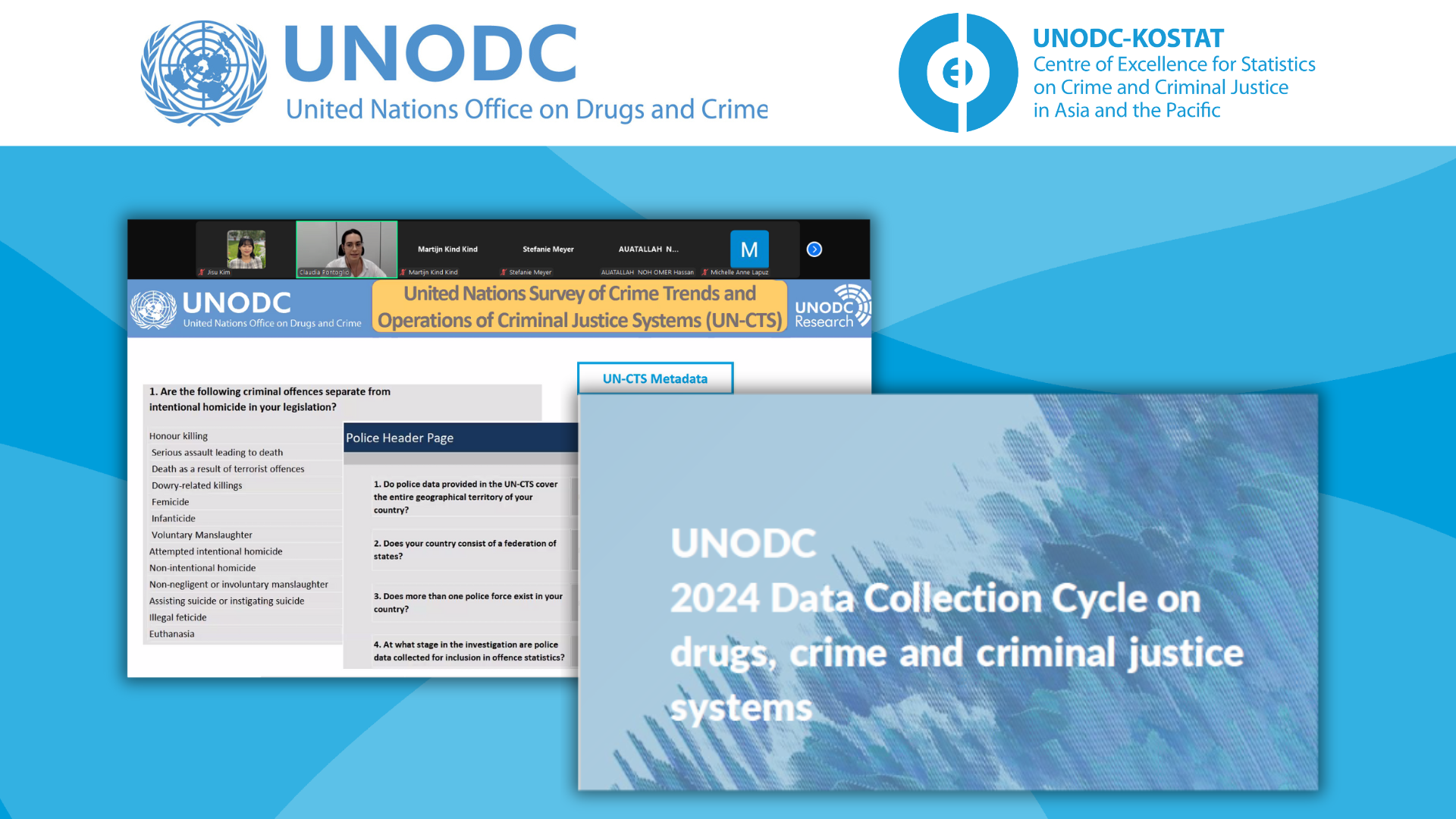
Daejeon (Republic of Korea), Virtual, 13 June 2024 – As in previous years, the United Nations Office on Drugs and Crime (UNODC) launched Data Day with an online Global Briefing on the Data Collection Cycle. During this event, countries are encouraged to compile and submit data on drugs, crime and criminal justice. These data collections offer Member States a centralized opportunity to gather crucial information, enabling the identification of crime patterns and trends for crime prevention, as well as the examination of their national criminal justice system's performance, information flow, and inter-agency collaboration.
Following a general session, where all UNODC methodological tools were briefly introduced, two distinct breakout sessions were established to discuss data collection on drugs, crime and criminal justice. Claudia Pontoglio, Associate Research Officer at the CoE, joined the session dedicated to Crime and Criminal Justice data, delivering a presentation on the United Nations Survey on Crime Trends and the Operations of Criminal Justice Systems (UN-CTS) with a case study on the Intentional Homicide section of the survey. The UN-CTS is a mandated annual questionnaire for Member States to collect a core set of data to help identify crime patterns and trends, assess the functioning of the criminal justice system, and monitor progress toward eight indicators of the Sustainable Development Goals (SDGs). Additionally, through its alignment with the International Classification of Crime of Statistical Purposes (ICCS), the UN-CTS helps Member States collect valid and internationally comparable data on crime and the criminal justice system.
The aim of the session was to reintroduce UNODC data collection tools to Member States in order to enhance their responses and provide a platform to answer their questions. Other topics covered in the session included: the Questionnaire for the Global Report on Trafficking in Persons (GLOTiP), the United Nations Illicit Arms Flows Questionnaire (UN-IAFQ), the Annual Report Questionnaire (ARQ) and Individual Drug Seizures (IDS).
The CoE continuously supports Member States in Asia and the Pacific in enhancing the quality and quantity of responses to the UN-CTS by providing technical assistance in implementing UNODC methodological tools.
Further information on the CoE can be found here, X (formerly Twitter) @CoE_UNODC and Facebook @UNODC.KOSTAT.CoE.